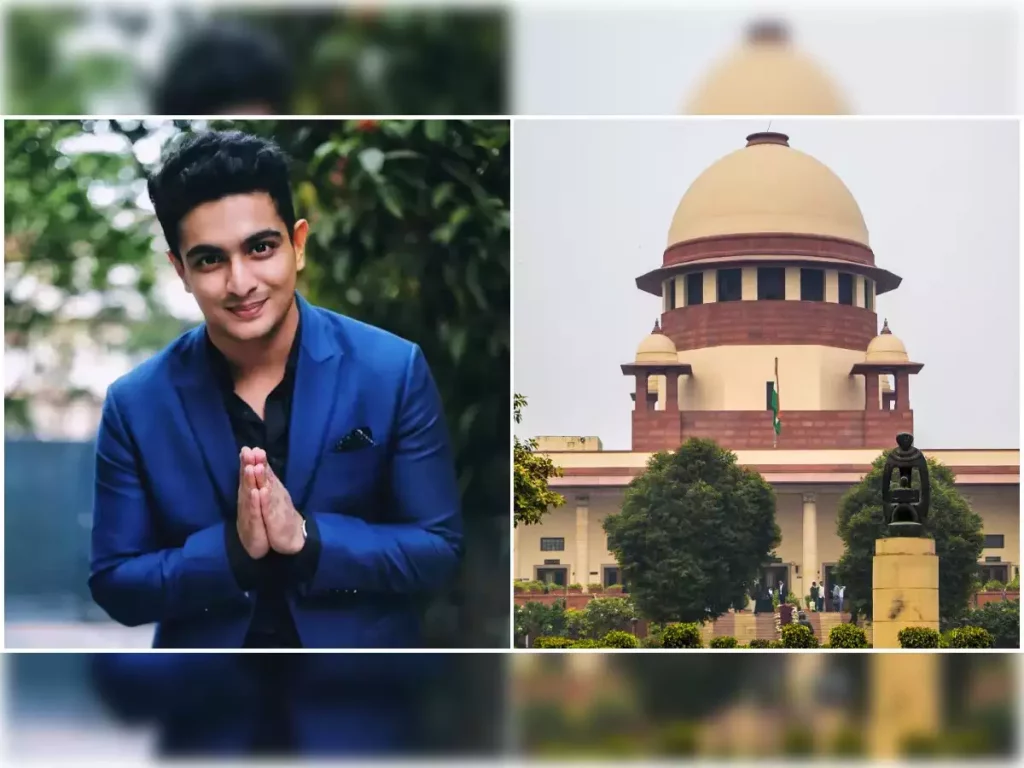Supreme Court Grants Relief to Ranveer Allahbadia Amid Controversy
The Supreme Court has provided interim relief to YouTuber and podcaster Ranveer Allahbadia, barring further FIRs against him regarding controversial remarks made on a stand-up show. However, the court’s decision to impose a gag order—restricting him and his associates from airing any content—has sparked debate over free speech rights in India.
Key Court Directives:
- Protection from Arrest: Allahbadia has been granted interim protection, preventing his arrest in connection with multiple FIRs filed in Jaipur and Guwahati.
- Passport Surrender: The court mandated that Allahbadia deposit his passport with Maharashtra authorities to prevent international travel.
- Gag Order: He and his associates are prohibited from publishing content on any audio-visual platform until further notice.
- Threat Protection: Given alleged death threats, the SC permitted him to seek police protection.
The Controversy: What Led to Legal Action?
Allahbadia, a well-known digital influencer, faced legal scrutiny after comments made during a stand-up show titled India’s Got Latent. The remarks, which allegedly contained obscene references to parents and relationships, sparked outrage across social media. The uproar led to multiple FIRs being filed across states, with political and social organizations calling for action against him.
While Allahbadia issued a public apology, stating that his remarks were in poor taste and never meant to offend, the case quickly escalated into a legal battle over content moderation and freedom of speech in India.
Legal and Constitutional Concerns
While the court’s relief shields Allahbadia from arbitrary police action, the imposed gag order has raised significant legal questions. Indian jurisprudence generally opposes prior restraints on speech, as seen in past Supreme Court rulings. In the 2022 Mohammed Zubair case, a similar gag request was denied, with the court warning against chilling effects on free speech (Bar & Bench).
Under Section 438(2) of the CrPC, courts can impose reasonable bail conditions. These often include passport deposits and regular police check-ins but rarely extend to speech restrictions. Legal experts argue that such an order, if upheld, could set a concerning precedent for content creators and digital media (Indian Kanoon).

The Debate on Free Speech vs. Content Regulation
This case highlights the ongoing debate between free speech and responsible content creation. While offensive speech can be challenged legally, outright bans on expression raise constitutional concerns. The Supreme Court has previously emphasized the importance of reasonable restrictions under Article 19(2) of the Indian Constitution but has also warned against excessive censorship that stifles public discourse (Government of India Law Resources).
The court has now sought input from the Attorney General of India on the regulation of online content, signaling potential policy changes that could impact digital creators across the country.
Public and Legal Reactions
The ruling has drawn mixed reactions from the legal fraternity and free speech advocates. Some argue that while offensive content should be scrutinized, a blanket ban on content creation oversteps constitutional safeguards. Others believe that such restrictions set a necessary precedent to curb misinformation and inappropriate content.
Senior legal experts point out that while Allahbadia’s remarks were inappropriate, penalizing speech through content bans rather than legal proceedings could set a dangerous precedent. The concern is whether this case will become a benchmark for future restrictions on digital platforms.
Ranveer Allahbadia’s Response
Following the backlash, Allahbadia issued multiple public apologies, acknowledging the insensitivity of his remarks. He admitted to a lapse in judgment and clarified that his intention was never to offend or harm anyone. In a video message, he stated:
“My comment wasn’t just inappropriate… it was not even funny. Comedy is not my forte, I am just here to say sorry. I personally had a lapse in judgment. It wasn’t cool on my part.”
What’s Next?
The case remains under judicial review, with further hearings expected to address both free speech concerns and legal interpretations of content regulation. The final verdict could have lasting implications on digital speech and content moderation laws in India.
The Supreme Court’s directive to seek input from government agencies suggests that a broader policy discussion on online content regulation is imminent. This could lead to new legal frameworks governing digital platforms and influencer accountability in India.
As the case unfolds, it serves as a crucial moment in defining the boundaries of free speech, digital content creation, and legal accountability in the age of social media.
Related Resources:
Ministry of Electronics and IT – Government regulations on digital con
Supreme Court Judgments – Key precedents on free speech
Indian Constitution – Article 19 – Understanding legal limits on speech
Criminal Procedure Code – Section 438 – Bail conditions under Indian law
Bar & Bench – Legal news on high-profile cases



